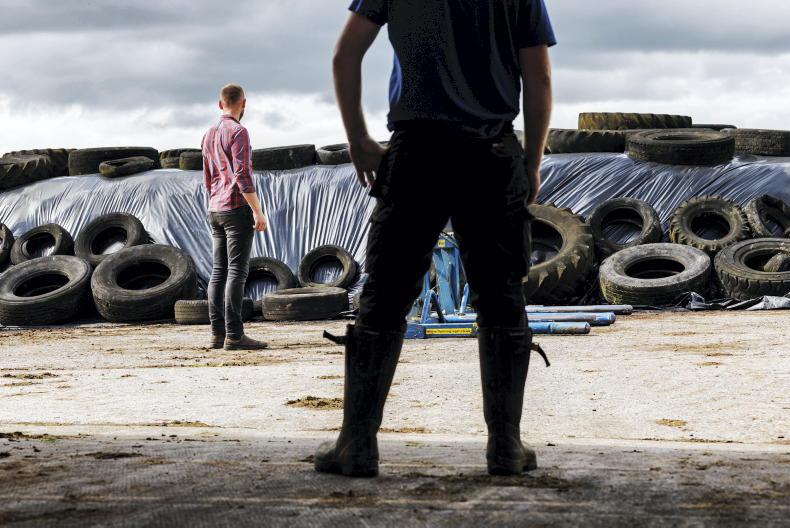The annual ifac food and agribusiness report released this week includes a survey of businesses in the sector, which highlights the challenges facing, and opportunities for, the sector.
Among the most interesting findings was that 90% of companies are taking some sustainability actions with many reporting increased requests for sustainability data from their customers. Those customer requests are driven by CSRD (Corporate Sustainability Reporting Directive) requirements, which require large corporations to report their ESG (environmental, social and governance) impact from this year.
In order to get a better picture of what their impact is, those large companies are turning to their suppliers for information on the impact of what they are buying. For those suppliers, such as the small and medium enterprises included in the ifac survey, this means that there is an increased administrative burden when selling to large companies.
As well as CSRD, there is also the upcoming GCD (Green Claims Directive), which is aimed at stopping companies claiming to be more environmentally responsible than they actually are – known as greenwashing. The GSD is focused on substantiating, communicating and verifying claims. From 2026 any company or product making claims to consumers in the EU that state or imply a positive environmental effect, such as “net zero” or “carbon neutral”, will have to be able to prove those claims.
The survey showed that those small and medium enterprises now see sustainability reporting as a bigger challenge to growth than infrastructure limits, changing consumer preferences and cybersecurity risks.
Costs
Almost two thirds of respondents to the survey cited cost and availability of inputs as the greatest threat to growth. More than four in five said that their costs of doing business had risen in the last 12 months, a higher number than reported a rise in the previous year.
Those costs are hitting the bottom line of the companies surveyed. While 80% said that their turnover had increased or stayed the same, only 28% managed to grow net profits. The number who reported a decline in net profit increased to 40%. More than one-third of business said that they are experiencing cashflow issues.
Further adding to the already substantial cost burden on businesses will be the introduction of the pension auto-enrolment scheme from Jan 1 2025. The scheme, which is a significant change to pension provision in Ireland, will make it compulsory for employers to enrol their employees in a pension scheme. It will have a direct and immediate impact on employment costs for those employers who are not currently running a pension scheme, with employers starting with a contribution rate of 1.5%, rising to 6% by the 10th year.
Speaking of employment, three-quarters of survey respondents said they find it difficult to recruit the right people, while almost half said they cannot meet the salary expectations of qualified candidates.
Optimism
Despite all the challenges facing businesses in the agri and food sectors, the level of resilience among survey respondents is notable. Almost two-thirds of businesses said they were either feeling optimistic or very optimistic about the next 12 months, a number that has actually risen since last year’s report.
The report shows that it is export markets which will particularly drive growth. Ireland’s vision to become a world leader in sustainable food systems, as set out in Food Vision 2030, means that while the regulatory burden might be rising here, the country should be well placed to compete in markets where environmental sustainability is increasingly becoming a vital selling point. Four out of 10 food businesses have identified exporting to new markets as the biggest opportunity for growth in the next 12 months.

David Leydon, ifac
Comment from David Leydon, head of food and agribusiness at ifac
For agri-engineering and agtech companies, the scaling and growth of the dairy sector over the past decade was very welcome and created an attractive growth market.
However, as we know this has now plateaued, and for many agribusinesses orientating for export is a key priority. There is a need to accelerate efforts across the board, so those companies and the rural communities they operate from can grow. The UK remains the key entry point, with the EU and North America following. Finding the right team to drive international expansion remains a challenge, as does finding the right distributor in local markets.
In short
Environmental regulations mean more paperwork for all businesses.Ifac survey shows that costs remain the biggest business challenge.Increase in turnover in last 12 months has not seen a similar rise in profit. New pension rules could add to regulatory burden.Despite the challenges, business owners remain optimistic.Many are looking to export markets for the next phase of growth.
The annual ifac food and agribusiness report released this week includes a survey of businesses in the sector, which highlights the challenges facing, and opportunities for, the sector.
Among the most interesting findings was that 90% of companies are taking some sustainability actions with many reporting increased requests for sustainability data from their customers. Those customer requests are driven by CSRD (Corporate Sustainability Reporting Directive) requirements, which require large corporations to report their ESG (environmental, social and governance) impact from this year.
In order to get a better picture of what their impact is, those large companies are turning to their suppliers for information on the impact of what they are buying. For those suppliers, such as the small and medium enterprises included in the ifac survey, this means that there is an increased administrative burden when selling to large companies.
As well as CSRD, there is also the upcoming GCD (Green Claims Directive), which is aimed at stopping companies claiming to be more environmentally responsible than they actually are – known as greenwashing. The GSD is focused on substantiating, communicating and verifying claims. From 2026 any company or product making claims to consumers in the EU that state or imply a positive environmental effect, such as “net zero” or “carbon neutral”, will have to be able to prove those claims.
The survey showed that those small and medium enterprises now see sustainability reporting as a bigger challenge to growth than infrastructure limits, changing consumer preferences and cybersecurity risks.
Costs
Almost two thirds of respondents to the survey cited cost and availability of inputs as the greatest threat to growth. More than four in five said that their costs of doing business had risen in the last 12 months, a higher number than reported a rise in the previous year.
Those costs are hitting the bottom line of the companies surveyed. While 80% said that their turnover had increased or stayed the same, only 28% managed to grow net profits. The number who reported a decline in net profit increased to 40%. More than one-third of business said that they are experiencing cashflow issues.
Further adding to the already substantial cost burden on businesses will be the introduction of the pension auto-enrolment scheme from Jan 1 2025. The scheme, which is a significant change to pension provision in Ireland, will make it compulsory for employers to enrol their employees in a pension scheme. It will have a direct and immediate impact on employment costs for those employers who are not currently running a pension scheme, with employers starting with a contribution rate of 1.5%, rising to 6% by the 10th year.
Speaking of employment, three-quarters of survey respondents said they find it difficult to recruit the right people, while almost half said they cannot meet the salary expectations of qualified candidates.
Optimism
Despite all the challenges facing businesses in the agri and food sectors, the level of resilience among survey respondents is notable. Almost two-thirds of businesses said they were either feeling optimistic or very optimistic about the next 12 months, a number that has actually risen since last year’s report.
The report shows that it is export markets which will particularly drive growth. Ireland’s vision to become a world leader in sustainable food systems, as set out in Food Vision 2030, means that while the regulatory burden might be rising here, the country should be well placed to compete in markets where environmental sustainability is increasingly becoming a vital selling point. Four out of 10 food businesses have identified exporting to new markets as the biggest opportunity for growth in the next 12 months.

David Leydon, ifac
Comment from David Leydon, head of food and agribusiness at ifac
For agri-engineering and agtech companies, the scaling and growth of the dairy sector over the past decade was very welcome and created an attractive growth market.
However, as we know this has now plateaued, and for many agribusinesses orientating for export is a key priority. There is a need to accelerate efforts across the board, so those companies and the rural communities they operate from can grow. The UK remains the key entry point, with the EU and North America following. Finding the right team to drive international expansion remains a challenge, as does finding the right distributor in local markets.
In short
Environmental regulations mean more paperwork for all businesses.Ifac survey shows that costs remain the biggest business challenge.Increase in turnover in last 12 months has not seen a similar rise in profit. New pension rules could add to regulatory burden.Despite the challenges, business owners remain optimistic.Many are looking to export markets for the next phase of growth. 









SHARING OPTIONS